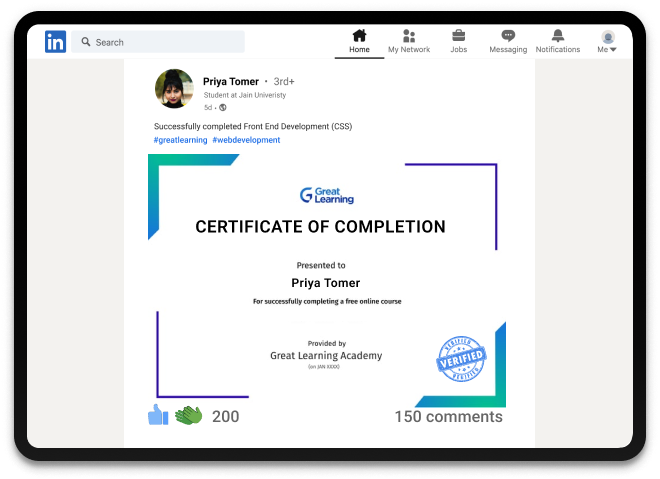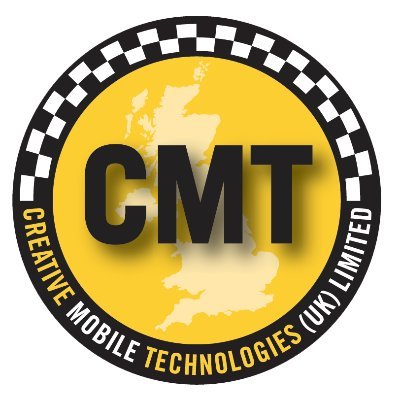Product Management
Learn Product Management with this Free Course
Enroll in our free Product Management course, learn from industry experts, hone your skills with practical examples, and boost your career potential. Take the first step towards becoming a successful product manager today!
What you learn in Product Management ?
About this Free Certificate Course
Start your path to mastering product management with this free course, designed to cover the entire spectrum from product life cycle and lean manufacturing to product leadership and innovation.
This free product management course will help you understand the product management process deeply, learn effective product development, launch, and maintenance strategies, and enhance your skills through practical examples, case studies, and real-world scenarios.
Concepts Covered in this Course
- Mastery of the Product Life Cycle: Understand each stage, from ideation and development to launch, growth, and maintenance.
- Crafting Effective Product Strategies: Learn to define your target audience, identify market needs, and develop winning product roadmaps.
- Marketing Mix Magic: Master the art of leveraging the 4Ps of marketing – product, price, place, and promotion – to drive success.
- Unleashing Design Thinking: Discover user-centered design principles to create products that resonate with your audience.
- Leadership Like a Pro: Grasp the nuances of product leadership, including team building, stakeholder management, and decision-making.
- Innovation at its Core: Cultivate an innovative mindset to generate groundbreaking ideas and stay ahead of the curve.
- Decoding the Product Manager: Dive deep into the diverse roles and responsibilities of a product manager.
- Leaning In: Optimize your process with lean manufacturing principles for efficient product development and delivery.
By the end of the course, you'll have the skills and knowledge necessary to successfully manage products and lead teams. Additionally, you will receive a certificate of completion, marking your achievement and readiness to succeed as a product manager.
If you want to learn further, join the Best Product Management course and build a rewarding career in Product Management.
Course Outline
In this module, you will come across the literal meaning of Product Management. Know why it is important to have a complete idea of the product to achieve the company’s goals.
Here, you will come across the benefits of Product Management in a company. Learn how using Product Management may reduce a company's extra expenses while also allowing it to flourish.
Just like a human being's life cycle, every product goes through a phase, and this is collectively understood as a Product Life Cycle. In this module, become familiar with the different phases of a Product Life Cycle, which are Introduction, Growth, Maturity, and Decline.
In this module, understand the four elements of the marketing mix that helps in developing a comprehensive marketing plan. One by one, get introduced to each element, Product, Price, Promotion, and Place with the help of examples.
Acquire knowledge of the points which are to be considered while developing a Product Management strategy. This module will explain what Product Management strategy is and why it is important to be developed by the business for a successful product life cycle.
With this course, you get
Free lifetime access
Learn anytime, anywhere
Completion Certificate
Stand out to your professional network
2.0 Hours
of self-paced video lectures
Frequently Asked Questions
What does a product manager do?
A product manager is responsible for the strategy, development, and success of a product. They identify market needs, prioritize features, and work with cross-functional teams to bring the product to market.
What is the concept of product management?
Product management is the process of defining, developing, and delivering a product that meets customer needs and aligns with business goals.
What are the 3 major areas of product management?
The three major areas of product management are: (1) Strategy, (2) Development, and (3) Launch & Post-launch.
What are the 7 stages of product management?
The seven stages of product management typically include idea generation, market research, concept development, product development, testing, launch, and post-launch monitoring and optimization.
What are the 6 P's of product management?
The 6 P's of product management refer to the key elements that product managers need to consider: Product, Price, Place, Promotion, People, and Process.
Success stories
Can Great Learning Academy courses help your career? Our learners tell us how.And thousands more such success stories..
Related Management Courses
Popular Upskilling Programs
Explore new and trending free online courses
Relevant Career Paths >
Product Management Course
Product management is an essential business function that involves the entire process of creating, developing, and launching a product. The goal of product management is to understand customer needs, design products that meet those needs, and deliver those products to market successfully. In this article, we will discuss the role of a product manager and the key responsibilities involved.
What is Product Management?
Product management involves the process of identifying and understanding the customer's needs, defining the product strategy, and ensuring the successful launch of the product. The product manager is responsible for the entire lifecycle of a product, from ideation to retirement.
The Role of a Product Manager
A product manager plays a crucial role in the development and success of a product. They act as the voice of the customer, identifying their needs and working with the development team to create a product that meets those needs. The following are the key responsibilities of a product manager:
Market Research: The product manager is responsible for conducting market research to understand the target audience, competition, and market trends. This research helps them to identify the gaps in the market and develop a product that meets the customer's needs.
Product Strategy: The product manager is responsible for defining the product strategy based on the market research. This strategy includes the product roadmap, features, pricing, and positioning.
Product Development: The product manager works closely with the development team to ensure the product is developed according to the product strategy. They provide guidance to the team, ensuring that the product is developed on time and within budget.
Product Launch: The product manager is responsible for the successful launch of the product. This involves coordinating with different teams, such as marketing and sales, to create a launch plan and ensure the product is released on time.
Product Maintenance: The product manager is responsible for the ongoing maintenance of the product. This includes ensuring that the product meets customer needs and identifying areas for improvement.
Key Skills for a Product Manager
To be a successful product manager, one must possess the following key skills:
Communication: A product manager must have excellent communication skills to collaborate effectively with different teams, such as development, marketing, and sales.
Leadership: A product manager must be a strong leader who can guide the team towards the common goal of delivering a successful product.
Strategic Thinking: A product manager must possess strong strategic thinking skills to develop a product strategy that meets the customer's needs and achieves business objectives.
Problem-Solving: A product manager must be able to identify problems and develop solutions that meet customer needs and business objectives.
Conclusion
In conclusion, product management is an essential business function that involves the entire process of creating, developing, and launching a product. The product manager plays a crucial role in the success of a product, and their responsibilities include market research, product strategy, product development, product launch, and product maintenance. To be a successful product manager, one must possess excellent communication, leadership, strategic thinking, and problem-solving skills.











































.jpg)








